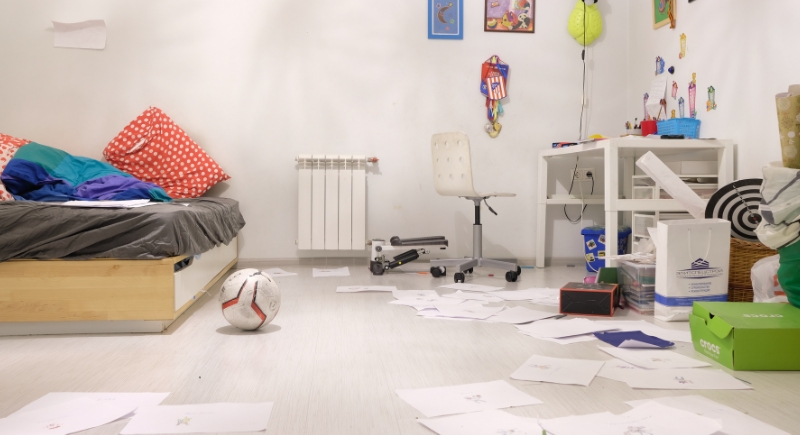20 “Bad” Habits That Eventually Turned Out to Be Good for You
We all have a few habits we’ve been side-eyeing for years. But sometimes, those behaviors we hide or apologize for are doing more for us than we realize. It could be anything from fidgeting in meetings, zoning out during conversations, or talking to ourselves like sitcom characters.
It’s all about context. With a little perspective shift, what once seemed indulgent or unproductive starts to look oddly wise. These bad habits reveal a different side of what it means to take care of yourself.
Being Picky About Your Choices

Credit: Getty Images
You know that moment when everyone’s raving about a new show, and you’re just not into it? That’s not you being difficult. It’s you trusting your filter. Being selective is how you keep your calendar (and sanity) from becoming a free-for-all. Saying no, especially when it’s hard, is a low-key superpower.
Zoning Out in Daydreams

Credit: Getty Images
Letting your mind drift can feel like procrastination, but it often leads to deeper insight. Studies link daydreaming with improved creativity, problem-solving, and memory. It’s a quiet way your brain sifts through emotions and unresolved thoughts.
Talking to Yourself Out Loud

Credit: Getty Images
Whether it’s narrating your to-do list or giving yourself a pep talk in the mirror, you’re not losing it, you’re streamlining your brain. Self-talk improves focus, reinforces memory, and helps regulate emotion. Plus, you always win the argument.
Letting the House Get a Little Messy

Credit: pexels
Constant tidiness isn’t always realistic or necessary. A little disorder in a lived-in space can reduce stress and remove the pressure to perform perfectly. Allowing some clutter may even support creativity by freeing you from rigid structure and control. Creativity likes a bit of breathing room, and so do you.
Keeping Your Distance Socially

Credit: pexels
Just because you’re not a social butterfly doesn’t mean you’re a hermit. You don’t have to be warm to everyone. Being reserved with new people or protecting your social energy is discerning. You’re allowed to be selective about who you invest in.
Letting Kids Play Video Games

Credit: Canva
Before you sigh at another round of Minecraft, hear this: Video games are being used in therapy, rehab, and even education. Puzzle-solving, motor skills, emotional resilience—there’s more going on behind that screen than meets the eye. Sometimes, screen time is brain time.
Jiggling Your Leg at the Table

Credit: iStockphoto
That leg bounce your coworker finds distracting might actually be helping you focus. Fidgeting keeps blood flowing and can ease restlessness, especially for people with ADHD or sensory needs. For some, especially those with sensory needs, movement is what helps them concentrate, not what distracts them.
Letting Yourself Cry When Needed

Credit: pexels
As opposed to what many people believe, crying isn’t really a bad habit. Holding it in might feel strong, but suppressing emotions often backfires. Crying helps regulate stress hormones and supports physical relaxation. There’s strength in being honest with yourself, even when it leaks out through your eyes.
Trusting Gut Instincts

Credit: Getty Images
Decisions don’t always need data. Just that feeling in your bones. Gut feelings come from experience, memory, and subtle pattern recognition. When something feels off—or just right—it’s often your brain making a fast, quiet calculation. Ignoring those instincts can sometimes lead to regret.
Multitasking During Chores

Credit: StockLite
Folding laundry with a podcast in your ear or watching your comfort show while meal-prepping is a life hack that makes you super productive. Combining mental stimulation with physical tasks helps stave off boredom and makes the mundane feel a bit more bearable.
Getting Angry When Something’s Unfair

Credit: pexels
Anger gets a bad rap. But beneath the fire is often a signal that something’s unjust or misaligned. When channeled well, anger can lead to action, boundaries, or clarity. It’s not the feeling that’s the problem—it’s what you do with it that counts.
Keeping Opinions to Yourself

Credit: Getty Images
You don’t owe the world your hot take. Choosing silence can be a sign of maturity, not passivity. Sometimes it’s better to preserve peace or avoid draining arguments than to be right. Letting go of the need to weigh in can be surprisingly liberating.
Rejecting Your Full “Potential”

Credit: Getty Images
You could be a CEO by 35, learn Mandarin, run a marathon, and start a nonprofit on the side—but should you? Living below your theoretical potential might just be the smartest, sanest thing you do. Choosing a simpler, steadier life over achievement for achievement’s sake can create more space for peace.
Spending Weekends Doing Nothing

Credit: Getty Images
Let go of that guilt you feel when you’re doing nothing. Rest is fuel for your body and is much needed. A weekend of pajamas, snacks, and zero productivity can actually make you more effective when you get back to it. Slowing down is part of the rhythm, not a break from it.
Choosing “Good Enough” Over Perfect

Credit: Getty Images
Perfection is a moving target. “Good enough” gets things done. Whether it’s a first draft, a Tuesday dinner, or a relationship, sometimes aiming for okay is the boldest move. Progress beats paralysis every time.
Texting From the Next Room

Credit: Getty Images
It looks lazy, but texting someone across the house can be practical. For busy households or those managing fatigue, it’s often the simplest way to stay connected. A quick text preserves energy, avoids chaos, and still gets the message across. Call it modern efficiency.
Not Always Telling the Truth

Credit: Peopleimages
Honesty is great—until it becomes blunt-force trauma. Sometimes choosing your words (or keeping a few to yourself) is emotional intelligence, not avoidance. Protecting peace or honoring privacy makes you wise enough to know the difference between truth and timing.
Living a Mediocre Life by Choice

Credit: Getty Images
Who decided every life needs to be a highlight reel? Maybe you don’t want to grind 60 hours a week, move to a big city, or start a side hustle. Choosing a slower, quieter life is freedom. Mediocrity is just a code word for contentment.
Being Bossy About Your Boundaries

Credit: Getty Images
“No” isn’t mean. It’s a full sentence. And sometimes, being clear about your time, space, and limits gets you labeled “difficult.” But holding the line on your own behalf is the ultimate self-respect you deserve.
Leaping Before You’re Fully Ready

Credit: Getty Images
No one ever really feels ready. Most leaps happen with one eye closed and both knees shaking. But motion creates momentum. You figure it out as you go, and that’s how things get built, not with confidence, but with courage.